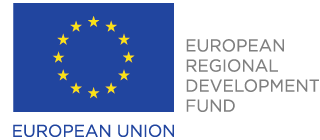Baltic Energy Areas – A Planning Perspective

In the project "Baltic Energy Areas – A Planning Perspective" (BEA-APP) 11 partners from eight countries around the Baltic Sea cooperate to support the transition towards low-carbon energy systems.
Background
EU and national policies call for an increase in the share of renewable energy in energy consumption. The Baltic Sea Region is a frontrunner in this respect. Many regions, including the ones of the BEA-APP project, have set very ambitious targets on renewable energy use.
To meet these goals, suitable areas for renewable energy installations such as wind parks, bio-energy units or solar panels need to be available. Spatial planners are tasked with making such space available. At the same time, they need to strike a balance between spatial claims for renewable energy with competing aims and land uses (e.g. nature protection, cultural landscapes, agriculture, tourism).
This job is a challenge in itself. Moreover, spatial planners lack the appropriate spatial planning instruments. Apart from that, they often face local resistance when designating areas for renewable energy production.
Aims
BEA-APP brings together two perspectives: spatial planning as well as regional energy policy. The project aims at increasing the capacity of regional and renewable energy planning actors by:
- Providing adjusted spatial planning instruments targeting renewable energy development,
- Developing innovative stakeholder involvement methods and financing systems to increase social acceptance through local ownership,
- Applying the developed measures to pilot cases, studying the features of suitable renewable energy production sites and, thereby, setting the scene for concrete projects.
BEA-APP is a flagship project under the EU Strategy for the Baltic Sea Region (EUSBSR).


